
Louis Anquetin Avenue de Clichy 1887

40 days before the election, US Attorney Jeff Jensen handed over a pile of documents to Michael Flynn attorney Sidney Powell yesterday. They are damning for a lot of people at the FBI, CIA and Obama White House. And this can no longer be labeled a politcal move. Powell published the documents right away, something Jensen and Bill Barr couldn’t have done at this point in time. The docs also show that FBI agents even took out insurance in case they would be sued. It may come in handy. Powell will no longer settle for a full exoneration of Flynn, she will go after the people who set him up, and that includes Obama.


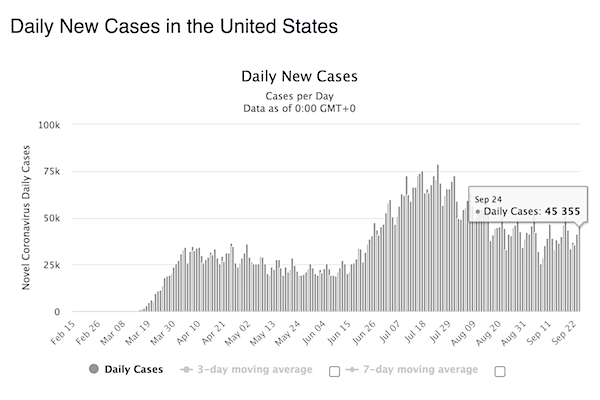

Joe Rogan interviews Edward Snowden. Long but recommended.

Taibbi Putin
Thank God @ggreenwald and I got our nomination letter in on time. https://t.co/CH79oaL6dZ
— Matt Taibbi (@mtaibbi) September 25, 2020

An option I wrote down months ago, but I don’t think I ever finished my piece on Sidney Powell: that Bill Barr knew any of his moves would be labeled “(party) political”, but if he handed over files to Sidney Powell, that would not be possible. Or, rather, he even had Jeff Jensen hand them over.
• Durham, Barr, Jensen and DOJ Production to Sidney Powell (CT)
The document production by USAO Jeff Jensen to Michael Flynn attorney, Sidney Powell, provides an opportunity for me to share a detached research opinion from my ongoing time outside the wire in the center of the swamp. No matter what open source information is collected; and no matter what evidence congress can assemble; the toxic political environment in DC is the primary driver of DOJ investigative events. It shouldn’t be, but the reality of action reflects an uncomfortable truth. Here’s my opinion on what is happening.
Attorney General Bill Barr is trying to split the baby against two competing narratives. On one hand there is enough evidence to indict former officials for gross abuses of power, falsifying information to a FISA court (violating fourth amendment protections); manipulating investigative effort for political purposes; weaponizing the intelligence apparatus of the U.S. to target political opposition, and then using their positions to cover-up their corrupt and unlawful conduct. On the other hand there is a current highly toxic political environment; consisting of elected politicians and a fully vested branch of government; attempting to cloud the reality that corrupt former government officials worked hand-in-glove with deceitful media, which includes agents of Lawfare, who collaborated in the effort.
This leads to current DC officials and people within those remaining institutions saying: there are delicate balances. In my opinion, in an effort to thread this needle -and considering the timing of the 2020 election- Bill Barr is using the document production from Missouri USAO Jeff Jensen as a backdoor method to provide the information he will not/cannot put forth in a press conference, report or series of indictments. This is why Jensen is providing new information to Michael Flynn s defense attorney Sidney Powell. The U.S. Attorney General knows Powell will make this information public; therefore Powell becomes a conduit to receive significant amounts of evidence previously hidden by the Special Counsel (Weissmann/Mueller) cover-up operation; the “insurance policy” of sorts.
Barr is essentially funneling information through Powell in lieu of a report which would include much of the same evidence. This is just how all indications align. Occam’s razor. Much of the released information has no direct bearing on Flynn *IF* there was going to be an alternate use of the evidence. Bill Barr is splitting the baby.

“The new AG might have some questions….then yada yada yada…we all get screwed..”
• FBI Analysts Bought Insurance Fearing They’d Be Sued For Misconduct in Flynn Case
FBI analysts working on the Michael Flynn Russia investigation originally planned to end the inquiry in fall 2016 and eventually bought liability insurance fearing they could be sued after their bosses continued to keep the investigation open based on “conspiracy theories,” explosive new text messages showed Thursday. “We all went and purchased professional liability insurance,” one analyst texted on Jan. 10, 2017, just 10 days before Trump took office. “Holy crap,” a colleague responded. “All the analysts too?” “Yep,” the first analyst said. “All the folks at the Agency as well.” “Can I ask who are the most likely litigators?” a colleague responded. “As far as potentially suing y’all.”
“Haha, who knows….I think the concern when we got it was that there was a big leak at DOJ and the NYT among others was going to do a piece,” the original analyst texted back. The explosive messages were attached to a new filing by Flynn’s attorney Sidney Powell, who argued to the court that is considering dismissing her client’s guilty plea that the emails show “stunning government misconduct” and “wrongful prosecution.” A hearing is scheduled for next Tuesday. “There was no case against General Flynn,” Powell wrote in the new motion. “There was no crime. The FBI and the prosecutors knew that. This American hero and his entire family have suffered for four years from public abuse, slander, libel, and all means of defamation at the hands of the very government he pledged his life to defend.”
The new FBI evidence was turned over late Wednesday and included a stunning revelation that FBI agents originally planned to close Flynn’s probe, known as Crossfire Razor, on Nov. 8, 2016, nearly a year before he was charged with lying to the FBI. “He said shut down Razor” and “so glad they’re closing Razor,” an FBI official texted that day. “However [redacted] was silent though, so who knows what he will want.” By January, the FBI analysts were alarmed that their agency was engaged in misconduct that could be discovered by President Trump’s new attorney general. “The new AG might have some questions….then yada yada yada…we all get screwed,” one official wrote.
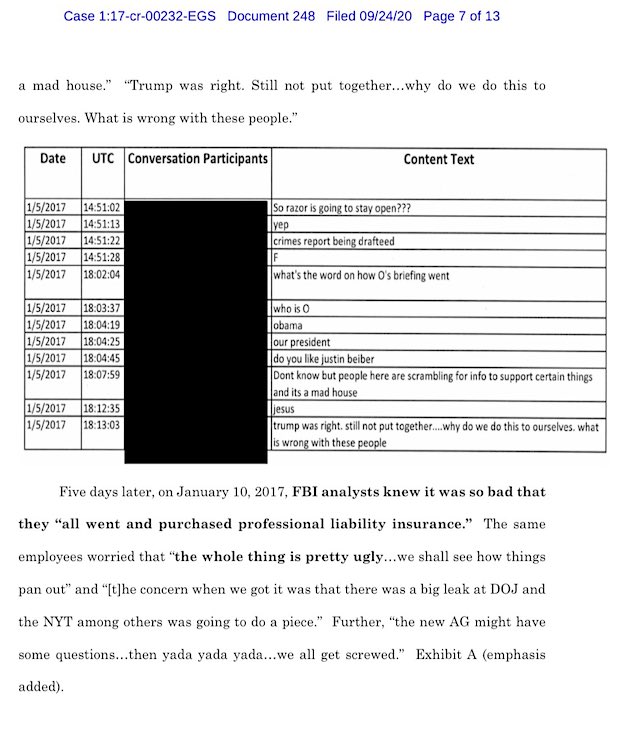

But how do you prosecute him? Also a job for Sidney Powell?
• Brennan Overruled Dissenting Analysts Who Said Russia Favored Hillary (RCI)
Former CIA Director John Brennan personally edited a crucial section of the intelligence report on Russian interference in the 2016 election and assigned a political ally to take a lead role in writing it after career analysts disputed Brennan’s take that Russian leader Vladimir Putin intervened in the 2016 election to help Donald Trump clinch the White House, according to two senior U.S. intelligence officials who have seen classified materials detailing Brennan’s role in drafting the document. The explosive conclusion Brennan inserted into the report was used to help justify continuing the Trump-Russia “collusion” investigation, which had been launched by the FBI in 2016. It was picked up after the election by Special Counsel Robert Mueller, who in the end found no proof that Trump or his campaign conspired with Moscow.
The Obama administration publicly released a declassified version of the report — known as the “Intelligence Community Assessment on Russian Activities and Intentions in Recent Elections (ICA)” — just two weeks before Trump took office, casting a cloud of suspicion over his presidency. Democrats and national media have cited the report to suggest Russia influenced the 2016 outcome and warn that Putin is likely meddling again to reelect Trump. The ICA is a key focus of U.S. Attorney John Durham’s ongoing investigation into the origins of the “collusion” probe. He wants to know if the intelligence findings were juiced for political purposes.
[..] The two officials said Brennan, who openly supported Clinton during the campaign, excluded conflicting evidence about Putin’s motives from the report, despite objections from some intelligence analysts who argued Putin counted on Clinton winning the election and viewed Trump as a “wild card.” The dissenting analysts found that Moscow preferred Clinton because it judged she would work with its leaders, whereas it worried Trump would be too unpredictable. As secretary of state, Clinton tried to “reset” relations with Moscow to move them to a more positive and cooperative stage, while Trump campaigned on expanding the U.S. military, which Moscow perceived as a threat.

So you have the CIA involved -Brennan- and cooperating with the FBI. They had Danchenko in their sights as early as 2005. Did they introduce him to Steele?
• FBI Investigated Steele Dossier Source As A Possible Russian Spy In 2010 (DC)
The FBI opened a counterintelligence investigation on the primary source for dossier author Christopher Steele, and considered obtaining a warrant to wiretap him in 2010, according to a document released Thursday. The FBI was also aware of the information about the source, identified elsewhere as Igor Danchenko, by December 2016, according to the document. “This is the most stunning and damning revelation the committee has uncovered,” Senate Judiciary Committee Chairman Lindsey Graham said in a statement after releasing an FBI memo about the dossier source. The document shows that the FBI considered a Foreign Intelligence Surveillance Act (FISA) warrant of Danchenko years before the bureau relied heavily on information that he had provided Steele, a former British spy, to obtain FISAs against Carter Page.
Danchenko is not named in the memo, though is attorney has confirmed to reporters that the Russian national was Steele’s source. The information also could increase concerns that Russian disinformation was fed to Steele, a former MI6 officer who investigated the Trump campaign on behalf of the Clinton campaign and DNC. A Justice Department inspector general’s report released Dec. 9 said that the FBI received evidence in January and February 2017 that Russian intelligence officers may have fed false information into Steele’s network of sources. Footnotes from the IG report say that two Russian intelligence officers knew in July 2016 that Steele was investigating the Trump campaign.
According to the FBI document, Danchenko had contact with suspected Russian intelligence officers in Washington, D.C. in 2005 and 2006. The document says that the FBI had an investigation into Danchenko open from May 2009 to March 2011, based on an interaction he allegedly had with three employees of an American think tank. Danchenko worked at the time as a Russia analyst for the Brookings Institution, a prominent liberal foreign policy think tank. An employee of the think tank said that another employee, seemingly Danchenko, told others that if they got jobs in the government and obtained classified security clearances, they might be put them in touch with people so they could “make a little extra money.” “The coworker did express suspicion of the employee and had questioned the possibility that the employee might actually be a Russian spy,” the FBI memo says.

“…were contacted last week by the DOJ and were warned that a “shit storm was heading their way.”..”
• McCabe At Center Of Durham’s Probe, Source A Suspected Russian Agent (SAC)
Chairman of the Senate Judiciary Committee Lindsey Graham hinted more than a week ago that more bombshell information regarding the FBI’s handling of its probe into President Donald Trump’s campaign and Russia was about to be public. He was right because it was Graham’s committee that discovered the information. A letter released Thursday night by Graham’s committee from Justice Department Attorney General William Barr revealed a declassified summary from the bureau indicating that former British spy Christopher Steele’s primary sub-source in his debunked dossier was believed to be a Russian spy. Not only was the sub source believed to be a spy but the FBI knew about it and had conducted a counterintelligence investigation on the individual.
“In light of this newly declassified information, I will be sending the FISA Court the information provided to inform them how wide and deep the effort to conceal exculpatory information regarding the Carter Page warrant application was in 2016 and 2017,” said Graham. “A small group of individuals in the Department of Justice and FBI should be held accountable for this fraud against the court. I do not believe they represent the overwhelming majority of patriotic men and women who work at the Department of Justice and FBI.” One of those individuals being investigated by Connecticut Prosecutor John Durham is former FBI Deputy Director Andrew McCabe, who was fired from the FBI by former Attorney General Jeff Sessions for lying to the Inspector General on multiple occasions.
He is now in Durham’s crosshairs, along with multiple other former senior FBI officials that were involved in the investigation, according to a source with direct knowledge. McCabe, along with other FBI officials, withheld that information from the Foreign Intelligence Surveillance Court, as well as some of the FBI special agents investigating Trump’s campaign and its alleged ties to Russia, according to the source. “McCabe and others were suppressing information, misrepresenting it or lying about the information that they had in order to purposefully undermine the Trump candidacy and that turned into the predication for undermining the Trump presidency,” said a source with direct knowledge of the situation.
The source, who is familiar with the ongoings of the senior brass at the FBI, told this reporter the FBI Director Christopher Wray, along with Deputy Director David Bowdich, were contacted last week by the DOJ and were warned that a “shit storm was heading their way.” The source alleged that McCabe is now a central figure in Durham’s investigation, along with several other senior FBI officials who were aware of the information but failed to disclose it.

Everyone’s first reaction: They should limit their own terms.
• House Dems Prep Bill To Limit Supreme Court Justice Terms To 18 Years (F.)
Democrats in the House of Representatives will reportedly introduce a bill next week to limit the tenure of U.S. Supreme Court justices to 18 years as Ruth Bader Ginsburg’s death puts a spotlight on the partisan fight over vacancies. Reps. Ro Khanna (D-Ca.), Joe Kennedy III (D-Ma.) and Don Beyer (D-Va.) said they plan to introduce the Supreme Court Term Limits and Regular Appointments Act on Tuesday, Khanna told Reuters. “It would save the country a lot of agony and help lower the temperature over fights for the court that go to the fault lines of cultural issues and is one of the primary things tearing at our social fabric,” said Khanna. The bill would limit each president to nominating two justices per four-year term, per Reuters which said it obtained a copy.
It would be the first legislation to set Supreme Court term limits by statute, according to Gabe Roth, the executive director of the judicial advocacy group Fix the Court, who notes Ginsburg’s death has brought more attention to the idea of term limits for the justices, who currently have lifetime appointments, with legal scholars and politicians from both sides of the aisle weighing in with potential proposals. [..] A 77% majority of Americans favor restrictions on the tenure of Supreme Court justices while 23% are against it, according to a recent PBS survey commissioned by Fix the Court.
The survey found that 70% of Republicans, 72% of Democrats and 68% of Independents found the statement, “No one with a position as powerful as Supreme Court justice should serve for life,” either “somewhat” or “very” persuasive. It also found that 70% of Republicans, 73% of Democrats and 68% of Independents were somewhat or very persuaded by the argument that, “Vacancies on the Supreme Court often occur unexpectedly and sporadically; term limits will make it so that vacancies are routine, which will reduce the political gamesmanship around them.”

But bankers and “investors” are fine.
• Hunger In America, Especially For Children, Has “Skyrocketed” (Int.)
The level of hunger in U.S. households almost tripled between 2019 and August of this year, according to an analysis of new data from the Census Bureau and the Department of Agriculture. Even more alarming, the proportion of American children who sometimes do not have enough to eat is now as much as 14 times higher than it was last year. The Agriculture Department conducts yearly studies on food insecurity in the U.S., with its report on 2019 released this month. The Census Bureau began frequent household surveys in April in response to Covid-19 that include questions about hunger.
The analysis, by the Washington, D.C.-based Center on Budget and Policy Priorities, found that 3.7 percent of U.S. households reported they sometimes or often had “not enough to eat” during 2019. Meanwhile, the most recent Census data from the end of August of this year showed that 10 percent of households said they sometimes or often did not have enough to eat within the past seven days. Levels of food insecurity in Black and Latino households are significantly higher, at 19 percent and 17 percent, respectively, compared to 7 percent in white households. Even worse, while about 1 percent of adults with children said their children sometimes or often went hungry in 2019, between 9 and 14 percent of such adults said the same about their kids in August 2020.
CBPP estimates that this adds up to about 5 million school-aged children in such households. “What I see every day from the pandemic is amazingly-increased numbers of severely underweight children coming to our clinic, and parents really panicked about how they’re going to find enough food,” says Dr. Megan Sandel, an associate professor of pediatrics at Boston University School of Medicine. [..] The increase in hunger among children is particularly disturbing, for several reasons. Generally, explains Dottie Rosenbaum, another CBPP expert, “parents shield their children.” Sandel says that “parents are reporting to me sometimes at mealtime going back into the kitchen so the kids don’t notice that they are not eating themselves.” So when children are going hungry, there is little food for anyone.

Greece is preparing military and private hospitals for a patient influx. But tourists from countries like France and Holland, which have huge increases in cases, are still welcome.
• UK, France Break Daily COVID Case Record As Europe Braces For 2nd Wave (F.)
Both the United Kingdom and France counted record-breaking new daily coronavirus infections Thursday, and while officials partly credit an increased testing capacity, the numbers point toward a possible second coronavirus wave sweeping across Europe. The U.K. reported a record of 6,634 new coronavirus cases Thursday, the highest number recorded by the country, even before its nationwide lockdown. However, Health Secretary Matt Hancock told Sky News the situation is not as dire as during the peak of the pandemic, when the government estimates that as many as 100,000 people were being infected with the virus per day, though lower testing rates at the time mean the daily infection figures from that period don’t reflect the virus’ true spread.
“Now we estimate that it’s under 10,000 people a day getting the disease,” Hancock said. “That’s too high, but it’s still much lower than in the peak.” Just across the English Channel, France also counted a record-breaking 16,096 new daily cases Thursday, the fourth time the record has been broken in just the past week or so. The news comes just after new coronavirus crackdowns were placed on cities like Paris, Marseilles, Bordeaux and Lyon to help damper a resurgence of new cases after the nationwide lockdown was scaled back. Like in the U.K., French officials say improved testing has meant more infections are being detected and recorded, though the country has seen a worrying trend of increased hospitalizations—the number of coronavirus patients in Paris’ hospitals has doubled over the past few weeks and will likely increase nearly twofold again before October, a Parisian hospital system official told Agence France-Presse.
“Although these numbers reflect more comprehensive testing, it also shows alarming rates of transmission across the region,“ the European director of the World Health Organization Hans Kluge said last week according to the BBC, when daily new cases began to rival the pandemic’s peak in spring. Kluge added that those numbers “should serve as a wake-up call for all of us.” European countries, some of the hardest hit early on in the coronavirus pandemic, were hailed as a model for the rest of the world after their governments enacted strict, nationwide lockdowns that drastically decreased the number of new coronavirus cases. However, many of those successful countries have reported a resurgence of cases in recent months after emerging from lockdown and gradually returning to a more normal life.
Countries like Spain, France, the U.K., The Czech Republic, Hungary, Austria, France and the Netherlands have all counted jumps in cases. The surges of new infections—though not considered as serious as the situation in spring, the peak of the pandemic in Europe—has led to new, often localized crackdowns in a bid to keep new cases at bay. The spikes across the continent have been blamed on young people shunning social distancing guidelines and attending parties after long months of isolation and people going on holiday despite travel warnings. While the European resurgence of the virus is concerning, it is still nowhere near the devastation seen in countries like the United States, which counted its 200,000th coronavirus death this week.
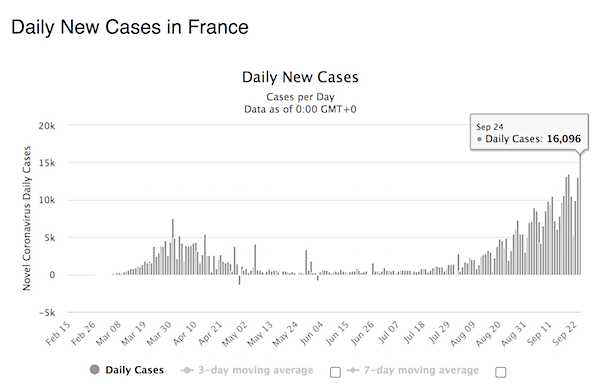

Should have been banned right there and then.
• Territorial Reach—The 1961 Amendment That Imperils Assange (Lauria)
If the original 1917 Espionage Act were still in force, the U.S. government could not have charged WikiLeaks publisher Julian Assange under it. The 1917 language of the Act restricted the territory where it could be applied to the United States, its possessions and international waters: “The provisions of this title shall extend to all Territories, possessions, and places subject to the jurisdiction of the United States whether or not continguous thereto, and offenses under this title when committed upon the high seas or elsewhere within the admiralty and maritime jurisdiction of the United States …” WikiLeaks publishing operations have never occurred in any of these places. But in 1961 Congressman Richard Poff, after several tries, was able to get the Senate t0 repeal Section 791 that restricted the Act to “within the jurisdiction of the United States, on the high seas, and within the United States.”
Poff was motivated by the case of Irvin Chambers Scarbeck, a State Department official who was convicted under a different statute, the controversial 1950 Subversive Activities Control Act, or McCarran Act, of passing classified information to the Polish government during the Cold War. (Congress overrode a veto by President Harry Truman of the McCarran Act. He called the Act “the greatest danger to freedom of speech, press, and assembly since the Alien and Sedition Laws of 1798,” a “mockery of the Bill of Rights” and a “long step toward totalitarianism.” Most of its provisions have been repealed.) Polish security agents had burst into a bedroom in 1959 to photograph Scarbeck in bed with a woman who was not his wife. Showing him the photos, the Polish agents blackmailed Scarbeck: turn over classified documents from the U.S. embassy or the photos would be published and his life ruined. Adultery was seen differently in that era.
Scarbeck then removed the documents from the embassy, which is U.S. territory covered by Espionage Act, and turned them over to the agents on Polish territory, which at the time was not. Scarbeck was found out, fired, and convicted, but he could not be prosecuted under the Espionage Act because of its then territorial limitations. That set Congressman Poff off on a one-man campaign to extend the reach of the Espionage Act to the entire globe. After three votes the amendment was passed. The Espionage Act thus became global, ensnaring anyone anywhere in the world into the web of U.S. jurisdiction. After the precedent being set by the Assange prosecution, it means that any journalist, anywhere in the world, who publishes national defense information is not safe from an Espionage Act prosecution.
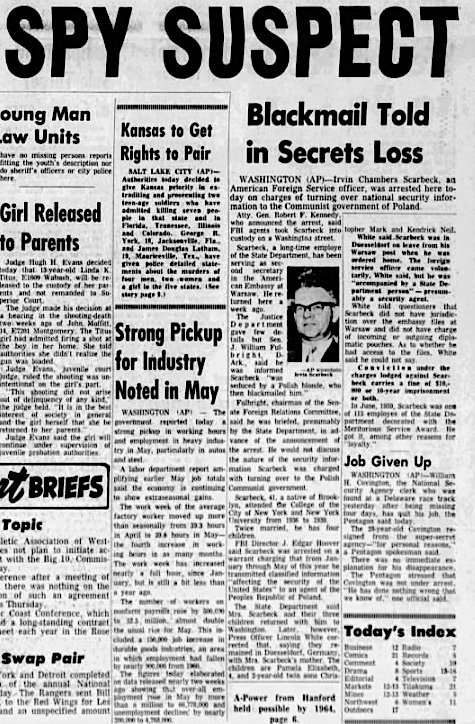

He had not even evaluated Julian.
• Assange a ‘Resilient Man’ Not at Risk of Suicide If Extradited – “Expert” (Sp.)
A psychiatrist testifying for the government says that whilst the WikiLeaks publisher is suffering from mild clinical depression he does not think he is a suicide risk if he is extradited to the United States to face espionage charges. A psychiatrist testifying for the US government in the extradition case of Julian Assange told the Old Bailey on 24 September 2020 that in his assessment the WikiLeaks publisher “would be able to resist any suicidal impulse” were he to be sent to the United States. During the examination-in-chief conducted by James Lewis QC, for the prosecution, Dr Nigel Blackwood, Consultant Forensic Psychiatrist with the NHS, explained that he saw Mr Assange in April 2020, in Belmarsh maximum-security prison. The doctor thought Mr Assange was “moderately depressed”, in the clinical sense, though a review of his most recent medical records from Belmarsh leads him to believe that there is some improvement of his state of mind.
Dr Blackwood did not think Mr Assange suffered from a “severe depressive disorder with psychotic symptoms” in November 2019, though he had not himself evaluated Mr Assange at that time and relied in his assessment on other observations made by the prison staff. The doctor, who consults with inmates at Wandsworth prison, notes some risk of suicide but that risk has been very carefully managed in Belmarsh, and the publisher engages closely with treatments to manage that risk. He believes Mr Assange retains the capacity to resist suicide, the court heard. Dr Blackwood says that he disputes that Mr Assange “was at the very severest end of the spectrum” and complains that Professor Michael Kopelman, a defence expert, “did not recognise” that if the treating physician at Belmarsh would have been bound to refer Mr Assange to a secure unit and that that did not occur.
Defence experts told the court earlier in the week that that they believed the risk that Mr Assange may commit suicide if extradited is “high” or even “very high”. Dr Blackwood explained that a person’s description of their own mood and mental state “will definitely be coloured” by their personality and own perspective. He thinks Mr Assange may have had a self-dramatising or hyperbolic approach to describing the symptoms and insisted that one must look very clearly at the psychological records Dr Blackwood also told the court that he has “anxieties” about making an autism diagnosis in a 49-year-old man where there has been no such diagnosis historically, despite Mr Assange’s contact with the medical community earlier in his life.

“..three psychiatrists and a physician with extensive experience of treating trauma have all testified in court that Assange’s mental and physical condition deteriorated while he was in “healthcare” for several months. ..”
• Assange Hearing Day 17 (Craig Murray)
During the hearing of medical evidence the last three days, the British government has been caught twice directly telling important lies about events in Belmarsh prison, each lie proven by documentary evidence. The common factor has been the medical records kept by Dr Daly, head of the jail’s medical services. There has also been, to put it at its very lightest, one apparent misrepresentation by Dr Daly. [..] This is Mr Kemp’s description of the medical wing at Belmarsh: “Security is on another level here with six times more staff per inmate than the rest of the jail.” While in the medical wing or “healthcare”, Julian Assange was in effect in solitary confinement, and three psychiatrists and a physician with extensive experience of treating trauma have all testified in court that Assange’s mental and physical condition deteriorated while he was in “healthcare” for several months.
They also said he improved after he left “healthcare”. That says something profound about the “healthcare” being provided. The same doctors testified that Assange has a poor relationship with Dr Daly and will not confide his symptoms or feelings to her, and this has also been asserted by defence council. That is all essential background to the lies. Now let me come to the lies. Unfortunately to do so I must reveal details of Julian’s medical condition which I had withheld, but I think the situation is so serious I must now do that. I did not report that Professor Michael Kopelman gave evidence that, among other preparations for suicide, Julian Assange had hidden a razor blade in his folded underwear, but this had been discovered in a search of his cell.
As I did report, Kopelman was subjected to an extremely aggressive cross-examination by James Lewis, which in the morning had focused on the notion that Julian Assange’s mental illness was simply malingering, and that Kopelman had failed to detect this. The razor blade was a key factor in Lewis’s browbeating of Kopelman, and he attacked him on it again and again and again. [..] In an attempt to humiliate Kopelman, Lewis said “You say you do not rely on the razor blade for your diagnosis. But you do rely on it. Let us then look at your report. You rely on the razor blade at paragraph 8. You mention it again at paragraph 11a. Then 11c. Then paragraph 14, paragraph 16, 17b, 18a. Then we come to the next section and the razor blade is there at paragraph 27 and 28. Then again in the summary it is at paragraphs 36 and again at paragraph 38. So tell me Professor, how can you say that you do not rely on the razor blade?” [I do not give the actual paragraph numbers; these are illustrative].
Lewis then went on to invite Kopelman to change his diagnosis. He asked him more than once if his diagnosis would be different if there was no razor blade and it were an invention by Assange. Kopelman was plainly unnerved by this attack. He agreed it was “very odd indeed” it was not mentioned in the medical notes if it were true. The plain attack that he had naively believed an obvious lie disconcerted Kopelman. Except it was Lewis who was not telling the truth. There really was a concealed razor blade, and what Assange had told Kopelman, and what Kopelman had believed, was true in every single detail. In a scene straight out of a TV legal drama, during Kopelman’s testimony, the defence had managed to obtain the charge sheet from Belmarsh Prison – Assange had been charged with the offence of the razor blade. The charge sheet is dated 09.00 on 7 May 2019
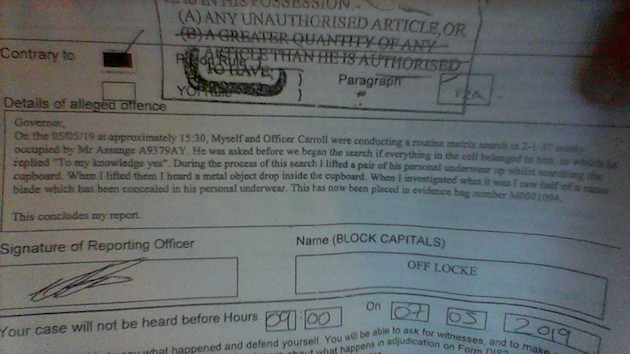

Ha ha! In gold letters please!
• This Is Lake Trump And It Is In Kosovo (GE)
It all started as an idea to relax negotiations between Kosovo and Serbia delegations, but the idea to name the Gazivoda/Ujman Lake “Lake Trump” as seen in the photo seems more serious than initially thought. An idea that started as a joke for the Ujman Lake, which Serbs refer to as Gazivoda, to find a compromise name seems to be taking shape. During the negotiations at the White House, the US Presidential envoy for the dialogue, Richard Grenell, gave the idea to name the lake after Trump. Initially everybody laughed with the idea. But not today. Gazeta Express has learned that Kosovo Prime Minister Avdullah Hoti expressed his readiness to support Grenell’s idea at a meeting with him.
The same idea was endorsed also by Serbian President Aleksandar Vucic at another meeting. The debate, and later the Agreement, about Ujman Lake have triggered a wave of reactions in Kosovo. Kosovo has reached an agreement with the US for the State Department to carry out a feasibility study on how to share the lake’s resources. The Ujman/Gazivoda Lake is mostly located in Kosovo’s territory but almost 20 percent of it is part of Serbia’s territory. This artificial lake was accumulated decades ago by the “Iber Lepenci” company, back when Kosovo was part of Yugoslavia. After the end of the war in 1999, there was a lot of tension caused about the lake as Kosovo considers it as its own property, while Serbia claims its ownership since part of it is in Serbia.


We try to run the Automatic Earth on donations. Since ad revenue has collapsed, you are now not just a reader, but an integral part of the process that builds this site.
Click at the top of the sidebars for Paypal and Patreon donations. Thank you for your support.



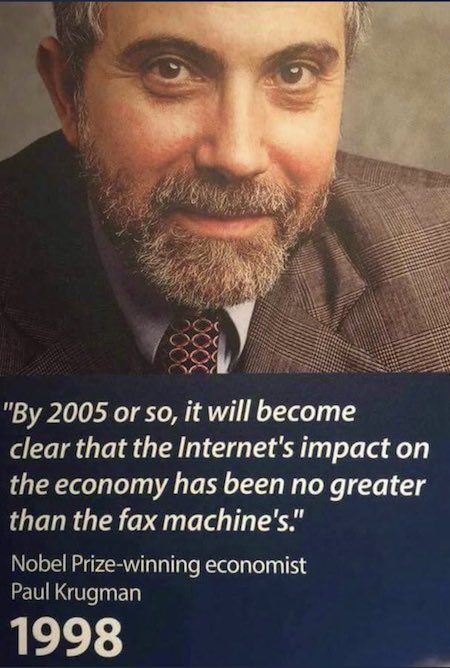

Support the Automatic Earth in virustime.







